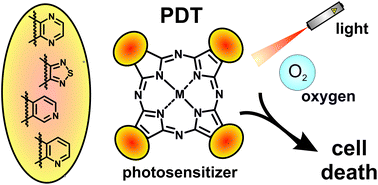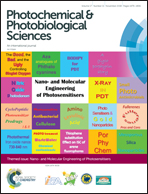Photodynamic properties of aza-analogues of phthalocyanines
Abstract
The replacement of benzene rings in phthalocyanines with various N-heterocycles produces a number of aza-analogues, azaphthalocyanines. This review summarizes their properties important for photodynamic therapy with a focus on (but not limited to) the most studied derivatives, i.e. tetrapyrazinoporphyrazines, tetra(2,3-pyrido)porphyrazines and tetra(3,4-pyrido)porphyrazines. Specifically, the spectral properties in both organic and aqueous solutions are discussed, with an emphasis on the prevention of undesirable aggregation, which typically leads to a loss of the photodynamic effects. Photophysical properties, such as the quantum yield of singlet oxygen production, may provide insights into the potential of azaphthalocyanines to cause cell death, whereas fluorescence quantum yields may refer to their role in cancer visualization. The main part of this review summarizes published results on the in vitro evaluation of these aza-analogues for anticancer, antifungal, and antimicrobial treatments as well as their interactions with biological materials.

- This article is part of the themed collection: Nano- and Molecular Engineering of Photosensitisers


 Please wait while we load your content...
Please wait while we load your content...